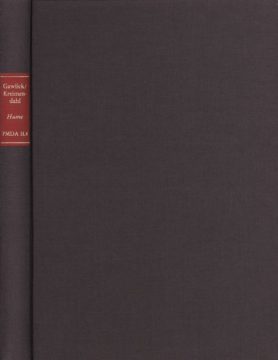In the 18th century there was a surprisingly large amount of interest in the thinker, author and human being David Hume (1711–1776), and this interest reflected the entire range of requirements and goals of the German Enlightenment. To begin with, the focus was on Hume‹s theories of the philosophy of religion, theories which were rejected without exception and often only polemically repudiated. Just when there was a chance of having an objective assessment of Hume‹s work, Kant revolutionized philosophy, and Hume was seen merely as the factor which triggered Kant‹s metaphysics. The controversial question of when and in which of his works Hume interrupted Kant’s dogmatic slumber is brought to a head, and thus at the same time a new theory pertaining to Kant’s philosophical development is presented.
- Veröffentlicht am Montag 5. Oktober 1987 von frommann-holzboog
- ISBN: 9783772809095
- 235 Seiten
- Genre: Aufklärung, Hardcover, Philosophie, Renaissance, Softcover
